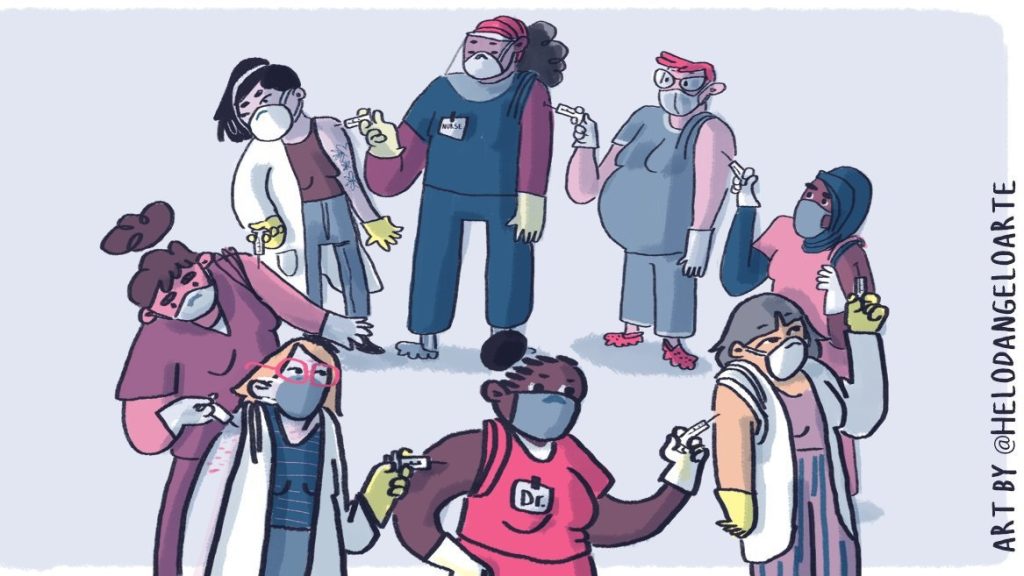Most low-income countries will have to wait until 2023 for widespread vaccine access. That whole time, the economic, education, health and social devastation to women and girls will get worse. Feminists for a People’s Vaccine fight to make access to vaccines and medicines an integral part of the struggle for women’s rights and equality.

The disproportionate impact of the pandemic on marginalized communities has become increasingly apparent. Despite this, healthcare policies have been slow to respond to structural inequalities based on factors such as gender, race, class, caste, disability, or even citizenship status. It is to address this gap that Third World Network (TWN) and Development Alternatives with Women for a New Era (DAWN) have launched the Feminists for a People’s Vaccine campaign (FPV). The initiative has brought together feminist voices from the Global South to challenge barriers to equitable, accessible, and affordable COVID-19 vaccines, medicines, therapeutics, and equipment.
“When disease hits and a country’s health system is weak, women suffer more because they provide care at home and illness adds to that burden. In households that are poor, there are often biases – men and sons get to see a doctor, get treated or get vaccinated over women and girls. The disproportionate access of women to health care is not new. We have seen it in other infectious diseases outbreaks and in day-to-day health needs,” says Chee Yoke Ling.
Responses to earlier epidemics, including HIV/AIDS and Zika, have also not considered gender-based differences. The FPV Campaign points out that despite accounting for more than 50% of people living with HIV (PLHIV), women are not a recognized key population. In the context of the current pandemic, among 388 policies implemented across 76 countries, it is found that only 9% addressed the role of gender in driving health outcomes.
According to Chee, “the FPV campaign is a rallying point for us to move fast and together, to make up for the lost time when feminists did not make access to medicines an integral part of the struggle for women’s rights and equality. The power of the women’s rights movement to organize and advocate can be phenomenal, and the energy and response to the FVP since its launch is very exciting and a major step in anchoring a feminist perspective for our entire health care system.”
A feminist perspective is also crucial since it foregrounds issues such as gender-based violence, social protections, and housing when it comes to healthcare policies. The International Labour Organization has reported that 4.1 billion people worldwide do not have access to social protection. Lack of access to healthcare and other forms of aid can be detrimental to the survival of marginalized communities.
A key area of focus for the FPV Campaign has been the ongoing debate surrounding the Trade-Related Aspects of Intellectual Property Rights (TRIPS) Agreement. Chee argues that: “The TRIPS Waiver is a very necessary tool to open up pharmaceutical monopolies and allow as many capable manufacturers as possible to produce life-saving vaccines and treatments medicines. Feminists fight every day for human rights, for equality and justice. Taking on the waiver is very much part of that larger struggle.”
Sources: Peoples Dispatch, Ms Magazine

